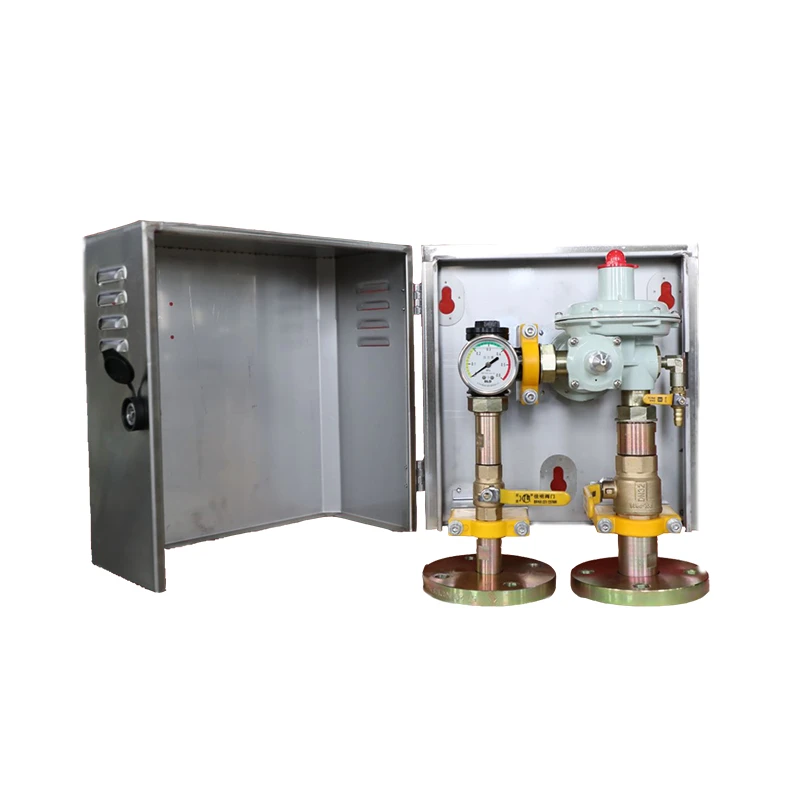
Dec . 21, 2024 14:38
Back to list
Understanding the Role and Functionality of Natural Gas Regulators in Energy Systems
Understanding Natural Gas Regulators Key Components of Safe Energy Distribution
Natural gas is a crucial energy source used in homes and industries around the world. Its efficient combustion provides heat for cooking, heating, and even electricity generation. However, to ensure its safe usage, an essential component in the natural gas distribution system is the natural gas regulator. This article will explore the function, types, and importance of natural gas regulators in maintaining a safe and reliable energy supply.
What is a Natural Gas Regulator?
A natural gas regulator is a mechanical device designed to control the pressure of natural gas as it flows from the supply pipeline to the end user’s appliances or equipment. Natural gas is delivered at a high pressure from the production site or storage facilities, and without regulation, such high pressure could result in dangerous situations, including equipment damage or gas leaks. The primary function of natural gas regulators is to reduce this high pressure to a safe and manageable level for consumption.
How Do Natural Gas Regulators Work?
Natural gas regulators work by employing a diaphragm mechanism that responds to changes in pressure. When gas flows through the regulator, it encounters a diaphragm that flexes in response to the gas pressure. If the pressure is too high, the diaphragm moves to close the valve partially, thereby reducing the flow and lowering the pressure. Conversely, if the pressure drops too low, the diaphragm opens the valve wider, allowing more gas to flow through. This automatic adjustment helps maintain a consistent pressure level, ensuring that appliances operate safely and efficiently.
Types of Natural Gas Regulators
Natural gas regulators can be broadly categorized into two main types first-stage regulators and second-stage regulators.
1. First-Stage Regulators These are typically installed at gas supply lines coming from distribution pipelines. Their primary purpose is to reduce high-pressure gas from the main supply line to a medium pressure suitable for distribution to various areas. They ensure that the pressure is lowered enough to be safely managed and transported to individual consumers.
natural gas regulator

2. Second-Stage Regulators These regulators are used to further reduce the gas pressure to the levels required by household appliances. Installed at the customer’s premises, they ensure that the gas delivered to stoves, heaters, and other devices is at the ideal pressure for optimal operation.
Additionally, there are specialized regulators such as electronic regulators and safety regulators, designed for specific applications like automated systems or safety-critical environments.
Importance of Natural Gas Regulators
Natural gas regulators play a pivotal role in energy safety and efficiency. Firstly, by controlling the pressure of the gas, these devices prevent potential hazards such as explosions, gas leaks, or equipment failures. Consistent pressure levels ensure that appliances operate effectively, minimizing wastage and maximizing energy efficiency.
Moreover, regulators contribute to the overall reliability of the gas distribution system. Variability in consumer demand can lead to fluctuating pressure levels; regulators adapt to these changes, ensuring consistent supply and quality of service.
Regular maintenance and inspection of natural gas regulators are crucial for safe operations. Over time, wear and tear can affect their performance, leading to potential risks. Periodic checks can identify any issues, allowing for timely repairs or replacements.
Conclusion
In summary, natural gas regulators are critical components in the safe and efficient distribution of natural gas. By controlling and regulating pressure, they ensure that this vital energy source can be used safely in our homes and industries. Understanding how these devices function and their importance can significantly contribute to safer energy practices and encourage users to engage in regular maintenance for their gas systems. As we move towards a more energy-conscious future, the role of regulators will remain essential in managing the safe use of natural gas—a resource that continues to play a major role in our energy landscape.
Next:
Latest news
-
Safety Valve Spring-Loaded Design Overpressure ProtectionNewsJul.25,2025
-
Precision Voltage Regulator AC5 Accuracy Grade PerformanceNewsJul.25,2025
-
Natural Gas Pressure Regulating Skid Industrial Pipeline ApplicationsNewsJul.25,2025
-
Natural Gas Filter Stainless Steel Mesh Element DesignNewsJul.25,2025
-
Gas Pressure Regulator Valve Direct-Acting Spring-Loaded DesignNewsJul.25,2025
-
Decompression Equipment Multi-Stage Heat Exchange System DesignNewsJul.25,2025

